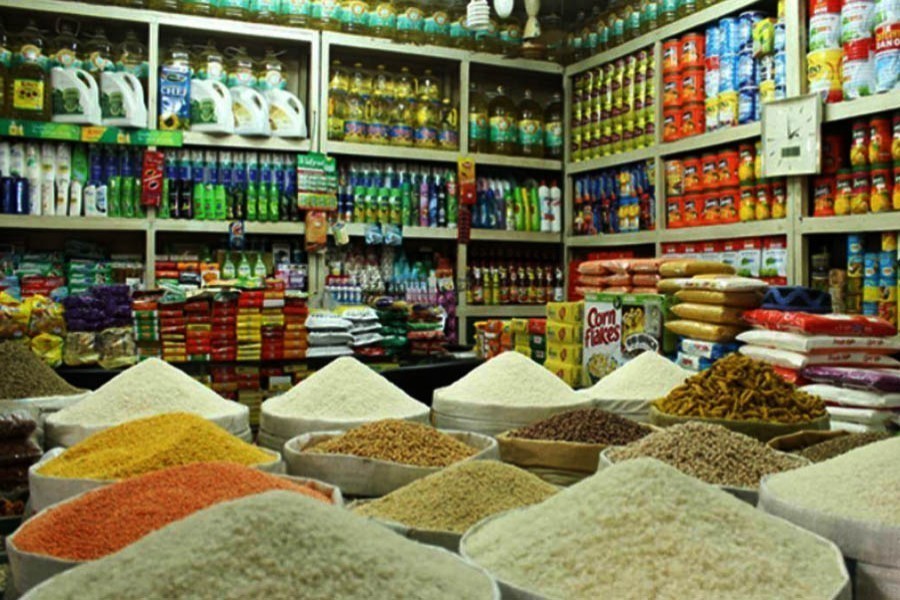The initiative to fix the maximum retail price (MRP) of nine essential commodities highlights the government's desire to offer some relief to consumers reeling from an overheated market. The success of the move, however, remains in serious doubt given the performance of the relevant official agencies in recent times. Items that will have their MRPs fixed include rice, onion, wheat, flour, refined sugar, lentil, edible oils and building materials such as MS rod and cement. The Ministry of Commerce (MoC) has asked the Bangladesh Trade and Tariff Commission (BTTC) to gather market data, collate those and set the 'reasonable' prices of the items in question.
Getting information on local production and import of the nine essentials from various sources will be a Herculean task for the BTTC. The Commission might get information from the importers about the volume of goods they have been bringing into the country, but assessing the production and stock of the goods produced locally would not be that easy. The tariff commission does neither have the manpower nor logistics to accomplish the task. More challenging will be the enforcement of the prices to be set for the nine essentials across the country. Earlier, the BTTC used to set prices for cooking oils and sugar only. The developments involving the prices of the two items are still fresh in the memory of the consumers. Traders have been calling the shot as far as prices of essential items are concerned. The government has always succumbed to the pressure of importers, refiners, millers and big traders.
Take the case of rice. As claimed by the government agencies, there had been bumper production during the last three rice cropping seasons. Yet the prices of rice continued to rise unabatedly. Even the import of rice at a reduced duty could not rein in the soaring prices of rice. The price rise of some essentials has been linked to international prices, to some extent. But that is not the case with rice. Officials cite many reasons for this unusual development. The bureaucratic complexities in the process of rice import need to be removed.
There is no denying that poor consumers are not being able to take the load of price-rise anymore. The move to sell rice and some other essentials at subsidized prices by the government deserves appreciation. But the coverage of the programme being too scanty and limited can hardly benefit a vast multitude of poor people. One, however, has to admit the fact that the government does not have enough resources to finance a major food distribution programme. But there are allegations that the government has been too lenient in dealing with traders who caused suffering to the consumers by resorting to irregularities of all sorts. The punitive actions taken against errant traders sporadically are, in most cases, cosmetic. Hence, the MoC and agencies under its control do not enjoy consumers' confidence. So, the latest move of the MoC, though pious in content, might not help the hard-pressed consumers much.


